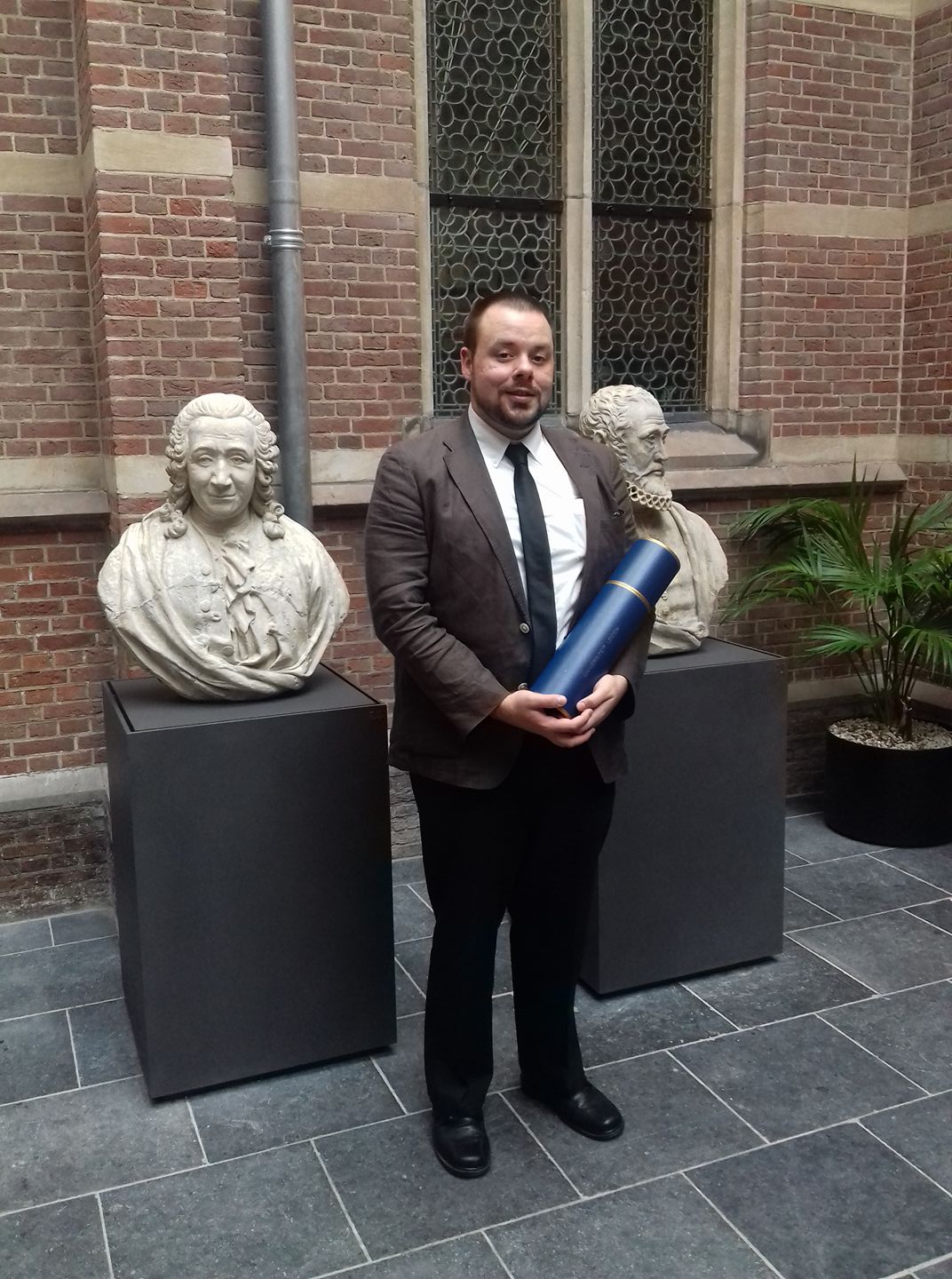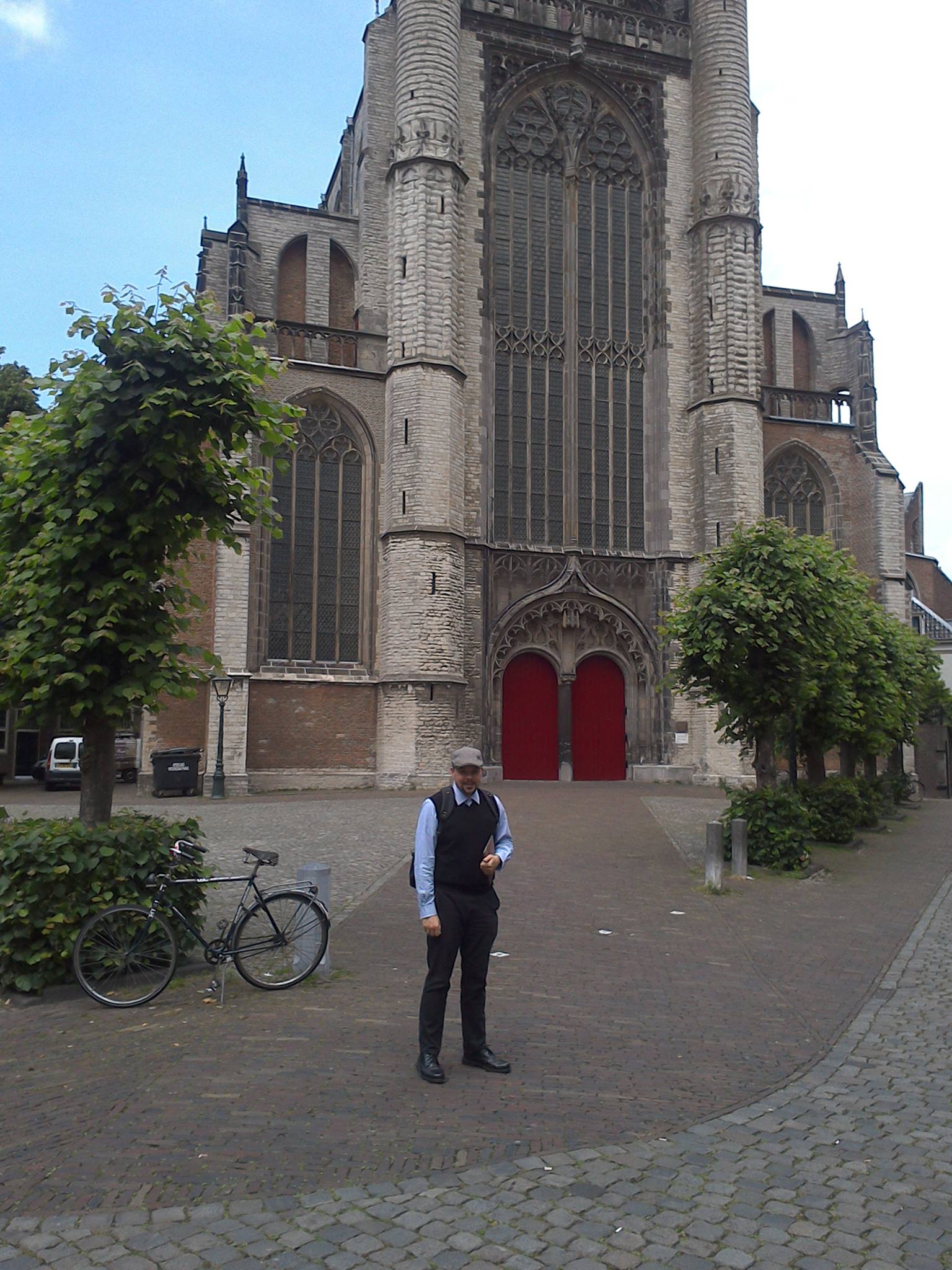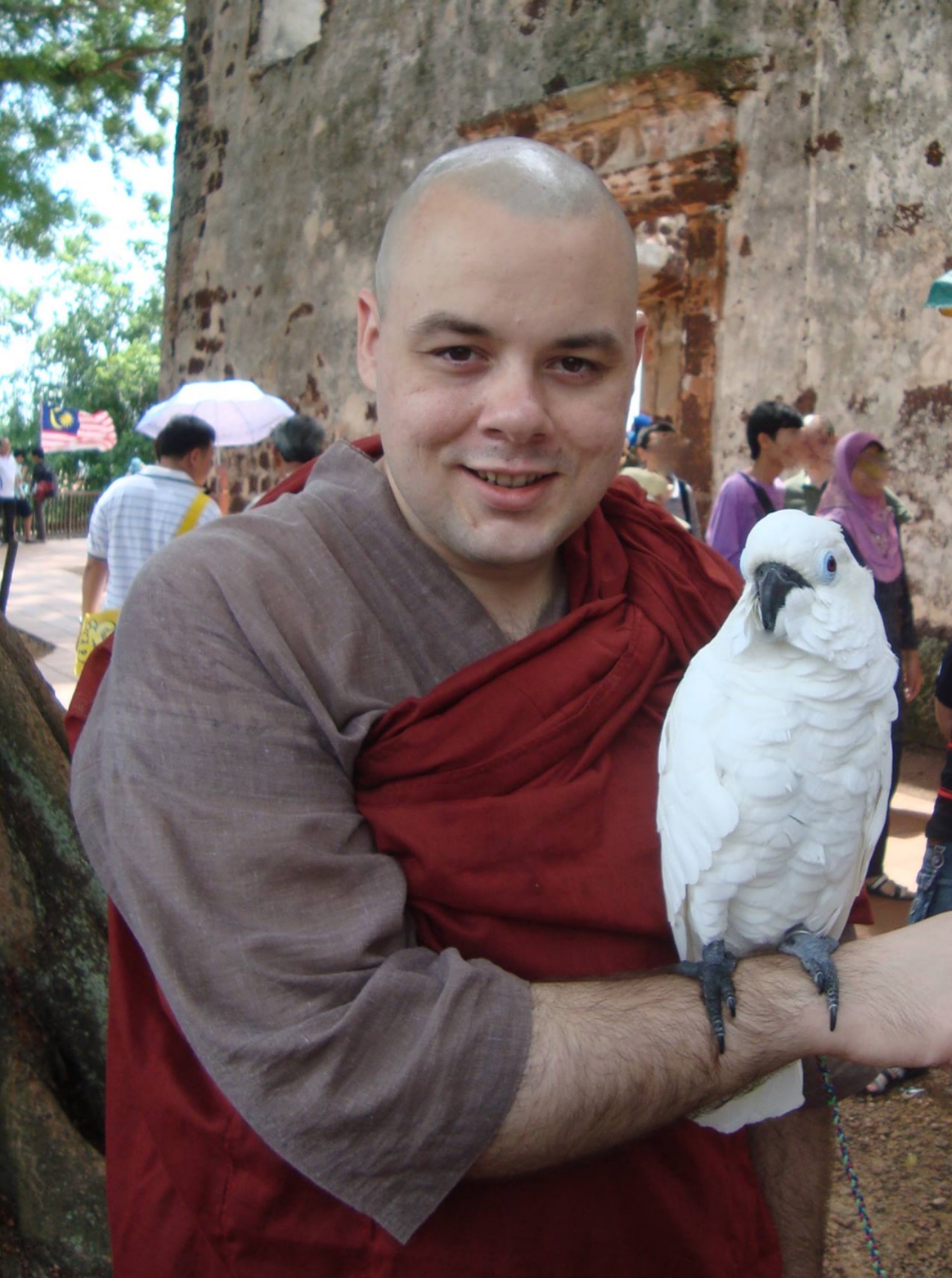Interested in what you can do with a degree in Asian Studies? In our Spotlight Interview Series, we ask our students, postdocs and alumni about their career paths, how they became interested in Asian Studies and for any advice they would give to current students. This interview features Jeffrey Kotyk, who is the current Sheng Yen Education Foundation Postdoctoral Fellow in Chinese Buddhism. He shares with us his lifelong love of learning (beginning with watching Chinese films and TV shows as a child growing up in Winnipeg), and the range of global locations his studies have taken him, including two years as a Buddhist monk!


Could you tell us a little about how you first became interested in Asian languages and cultures?
When I was in grade two, I remember finding a book in the library that introduced other scripts in a child-friendly way. I distinctly remember seeing the Chinese characters and being quite intrigued. I also grew up watching films from Asia, such as Godzilla and later Crouching Tiger, Hidden Dragon. I remember Samurai Pizza Cats on TV too. I think food also inspired a lot of interest. I spent my childhood and youth in Winnipeg, so there was (and still is) a great variety of cuisine available. I really enjoyed Chinese dishes and shopping at the Chinese supermarket downtown. Later in my high school days, I was introduced to sushi, which I really liked. I was also involved in martial arts, in particular ju-jutsu. During my undergraduate years, I started reading about Buddhism, Daoism and Confucianism. I decided to enroll in Introduction to Japanese, and later started learning Modern Chinese too. I decided to major in Asian Studies.
What choice(s) did you make in your undergraduate degree that lead(s) to your decision in pursuing further studies within the same discipline?
I first went to Japan in 2005 for spring break. This experience prompted me to really invest myself in the study of East Asia. The following year I was able to study abroad in Tokyo for one year. This was an opportunity to really develop literacy and fluency in Japanese. During this year, I also spent a few weeks at Antai-ji, which is an international Zen temple in Hyogo Prefecture. The world of historical Buddhism and its vast history really intrigued me. I also felt challenged by the scale of such studies. One could study Japanese, Chinese, Sanskrit, Tibetan and a few other languages in the process of becoming an expert in Buddhist Studies. I subsequently started studying Classical Chinese and other subjects on my own. I decided I wanted to do a PhD in the subject of Buddhist Studies. Toward the end of my BA degree at the University of Alberta, I was offered the MEXT scholarship from the Japanese Ministry of Education. This was an excellent opportunity, so I accepted it immediately and prepared to do my MA degree in Buddhist Studies at Komazawa University in Tokyo.
Could you explain to a non-expert what you are researching and why it is significant?
At the moment, I am looking at how Chinese Buddhist authors in the medieval period viewed and wrote about non-Chinese cultures and people in relation to what the state or secular sources say. There were basically two separate communities of history and geography writers at the time: the Buddhists and the authors generally associated with the court. The latter seldom read the former, which is interesting in itself because the Buddhists had a rich amount of information that in theory would have been useful. This sort of interaction, or lack thereof, is informative about how the Buddhist sangha and state communicated. Moreover, the accounts of foreign countries in the state sources can tell us a lot about contemporary peoples and international politics. Generally scholarship has utilized the Buddhist sources, yet the state sources are equally valuable, albeit presently understudied. Through these sources we can see how China viewed the rest of the world from the eyes of different communities.


What are your career and academic goals? And how is our program helping you achieve them?
I would like to secure a tenure-track appointment and eventually run international research projects which bring together scholars from multiple backgrounds and fields of expertise. I am particularly interested in transcultural history and exchanges between different cultures during the premodern period of East Asia. I feel that UBC offers a great environment for research and also teaching. The library resources are excellent and many scholars visit the campus for conferences and other occasions. I am confident that my time here will be very gainful.
Has there been an aspect of your study/travel experience that was unexpected? What was the outcome?
I ordained as a Buddhist monk in India for about two years between the end of my MA degree and the start of my PhD. It was an opportunity to learn Buddhism from the inside and moreover to cultivate relationships with living traditions. This wasn’t something I had planned on doing, but the opportunity arose and so I took it. I spent some months in meditation retreat in Leh, Ladakh (located on the western side of the Himalayas in northern India). I also spent time at Bodhgaya, the site of the Bodhi Tree. It was a rich experience and I learnt a lot from it. I also visited Singapore and Malaysia during that time. During my time as a monk, I also spent a lot of time reading sutras and other Buddhist texts in large volumes, so I’d like to think I gained a lot of knowledge of the textual traditions. I also didn’t originally have the long-term aim of doing my PhD at Leiden University in the Netherlands: the opportunity presented itself, so I took it.


Can you give any advice to new students in our program or for students considering applying to it?
If you’re interested in Asian Studies, for many people the initial challenge is the languages, since you’ll probably be studying a new language that uses a non-Roman script with a lot of unfamiliar vocabulary. I would suggest being prepared to devote a lot of time to language study, but at the same time find interesting ways to use the language. You can watch media in different languages online nowadays quite easily, but you can also do extracurricular activities like language exchanges and guided reading practice. If you’re planning to study Chinese or Japanese, I suggest getting a lot of graph paper and patiently practicing each character you learn by hand. If you can, also consider studying abroad for a year. There are often scholarships and other arrangements possible to facilitate this. Mastering at least one language is worth the effort in the long-term.


